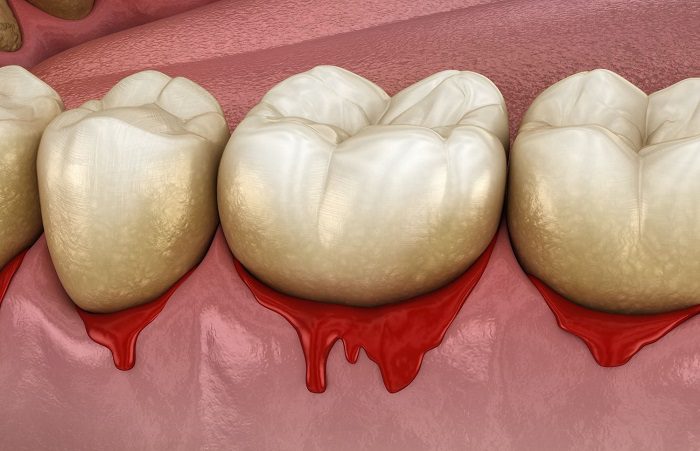When it comes to caring for your smile, you might focus on your teeth and the way that they appear. But maintaining good oral health also means paying attention to your gums. Gum disease is an infection in the gum tissue that affects about half of the adults in the United States.
Though prevalent, gum disease will wreak serious havoc on your gums if you neglect the problem. Do not ignore issues with your gums, or you could face irreversible damage to your smile.
Understanding what gum disease can do to your smile can encourage you to seek the periodontal care you need. Read on to learn more about the importance of caring for your gums in relation to overall oral health.

How Do I Know If I Have Gum Disease?
Gum disease often starts with bacteria irritating the gum tissue. You may see redness, swelling, soreness, or bleeding in the gums during this early stage of the infection, known as gingivitis.
As the disease spreads, it will reach the tooth root and jawbone, and the bacteria will deteriorate these parts of the mouth. You can see gum recession, bad breath, shifting of the teeth’s positions, and even tooth loss with advanced gum disease.
However, gum disease can also occur without any noticeable symptoms. So you should visit your dentist on a regular basis so that they can screen you for gum disease. Then they can catch the infection early when it is easier to treat and before it causes too much harm to your smile.
How Will My Dentist Treat Gum Disease?
Gum disease does not go away on its own. You will need a dentist to eradicate this infection from your gum tissue. Do not delay seeking this periodontal therapy from your dentist, or you can face lasting consequences to your oral health. For more information on how we provide periodontal therapy, see Periodontal Disease Treatment.
To treat gum disease, a dentist will thoroughly clean your teeth using targeted techniques known as scaling and root planing. This removes bacterial build-up in tricky spots near the gumline.
If the infection persists, you might need to take antibiotics. Some people may also benefit from an antibacterial rinse, which will balance oral bacteria to alleviate uncomfortable periodontal symptoms and reduce the risk of infections.
How Can I Protect My Gum Health?
Because gum disease requires intervention from your dentist to treat, dentists emphasize preventative care to preserve your gum health. To protect your gums, practice good oral hygiene. This will involve brushing your teeth at least twice per day and flossing daily.
Maximize your oral hygiene by attending regular teeth cleanings with your dentist. This removes harmful plaque before it can contribute to the spread of bacteria that may cause gum disease.
Some people have risk factors for gum disease, like underlying health conditions or aggressive oral bacteria. Talk to your dentist to find personalized preventative oral health care that can keep your gums safe from infection. Pay attention to your smile, and do not hesitate to tell your dentist about any changes or issues in your gums.
